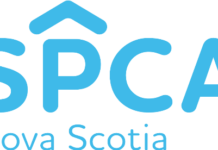SMEs in Ontario and three western provinces owed
over $2,600-$7,00 in rebates for the past five years.
MONCTON, N.B.: With the recent confirmation from Ottawa that it owes Canada’s small and medium-sized businesses over $2.5 billion in carbon tax (fuel charge) rebates, the Canadian Federation of Independent Business (CFIB) is calling on the federal government to immediately disperse the funds equally to all SMEs as it does with the consumer carbon rebate.
This would result in one-time rebates between $630 and $1,060 in the four Atlantic provinces that came under the carbon tax just eight months ago.
In Ontario, Manitoba, Saskatchewan and Alberta, the provinces under the federal carbon backstop since the beginning, the rebates would be between $2,600 and $7,000.
“That’s a big chunk of money that small business owners could really use right now. It’s deeply unfair that five years into the program, Ottawa is still sitting on over $2.5 billion it owes to small firms,” said CFIB Senior Policy Analyst, Frederic Gionet.
ADVERTISEMENT:
“Enough is enough. The government must act now and return the promised carbon tax revenues to all small businesses in the eight provinces under the federal backstop.”
| Amount allocated to SMEs 2019-2024 ($millions) | Business counts | Rebate per business | |
| Alberta | 718.2 | 175,383 | $4,095 |
| Saskatchewan | 300.6 | 43,007 | $6,990 |
| Manitoba | 143.9 | 43,781 | $3,287 |
| Ontario | 1,336.20 | 506,632 | $2,637 |
| New Brunswick | 17.1 | 26,468 | $646 |
| Nova Scotia | 28.5 | 32,419 | $879 |
| Prince Edward Island | 4.4 | 6,976 | $631 |
| Newfoundland and Labrador | 20.1 | 19,002 | $1,058 |
For the 2019-20 and 2023-24 fiscal years, the average rebate amount per business would be $2,500 for all provinces.
ADVERTISEMENT:
Recently, the federal government also announced it will cut SME rebates promised to small businesses to 5% from 9% starting in 2024.
“Rather than viewing small businesses as a partner on climate change, the federal government clearly sees them as the just the source of a big bag of cash to deal with political sensitivities over the carbon tax,” Gionet added.
“While small firms take no issue with increased rebates for rural residents and Indigenous organizations, it is outrageous that the tiny sliver of rebate revenue aimed at small businesses would be cut nearly in half to pay for it.”
ADVERTISEMENT:
CFIB continues to call for fairness for small businesses and push the federal government to:
- Immediately return the $2.5 billion owed to all small businesses since 2019.
- Scrap the idea of returning the SME allocation only to “emissions-intensive, trade-exposed” businesses in favour of a simple rebate for all SMEs.
- Scrap the plan to reduce the SME share of carbon tax revenue from 9% to 5% in 2024 and rebate it annually.
- Increase the SME rebate to 40% of carbon tax revenue – the share CFIB estimates comes from business.
- Pass Bill C-234 as originally proposed to exempt natural gas and propane used for on-farm activities, including grain drying and heating farm buildings.
- Freeze the carbon tax rate at its current level.
- Exempt all heating fuels, including natural gas.
“The whole carbon tax system is a giant rip-off and needs to be fixed immediately. Small businesses deserve to be treated fairly,” said Louis-Philippe Gauthier, Atlantic Vice-President.
Small businesses can add their voice to CFIB’s fight for fairness by signing CFIB’s petition.
































